Through the Wormhole
Season 1
s01e01 / Is There a Creator?
10th Jun '10 - 2:00am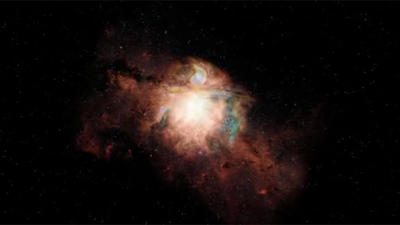
It's perhaps the biggest, most controversial mystery in the cosmos. Did our Universe just come into being by random chance, or was it created by a God who nurtures and sustains all life? The latest science is showing that the four forces governing our universe are phenomenally finely tuned. So finely that it had led many to the conclusion that someone, or something, must have calibrated them; a belief further backed up by evidence that everything in our universe may emanate from one extraordinarily elegant and beautiful design known as the E8 Lie Group. While skeptics hold that these findings are neither conclusive nor evidence of a divine creator, some cutting edge physicists are already positing who this God is: an alien gamester who's created our world as the ultimate SIM game for his own amusement. It's an answer as compelling as it is disconcerting.
s01e02 / The Riddle of Black Holes
17th Jun '10 - 2:00am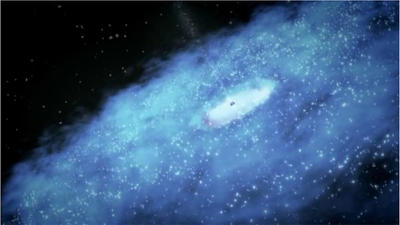
They are the most powerful objects in the universe. Nothing, not even light, can escape the gravitational pull of a black hole. Astronomers now believe there are billions of them out in the cosmos, swallowing up planets, even entire stars in unhappy feeding frenzies. New theoretical research into the twisted reality of black holes suggests that three-dimensional space could be an illusion. That reality actually takes place on a two-dimensional hologram at the edge of the universe.
s01e03 / Is Time Travel Possible?
24th Jun '10 - 2:00am
Einstein's Theory of Relativity says that time travel is perfectly possible - if you're going forward. Finding a way to travel backwards requires breaking the speed of light, which so far seems impossible. But now, strange-but-true phenomena such as quantum nonlocality, where particles instantly teleport across vast distances, may give us a way to make the dream of traveling back and forth through time a reality. Step into a time machine and rewrite history, bring loved ones back to life, control our destinies. But if we succeed, what are the consequences of such freedom? Will we get trapped in a plethora of paradoxes and multiple universes that will destroy the fabric of the universe?
s01e04 / What Happened Before the Beginning?
1st Jul '10 - 2:00am
Every cosmologist and astronomer agrees: our Universe is 13.7 billion years old. Using cutting-edge technology, scientists are now able to take a snapshot of the Universe a mere heartbeat after its birth. Armed with hypersensitive satellites, astronomers look back in time to the very moment of creation, when all the matter in the Universe exploded into existence. It is here that we uncover an unsolved mystery as old as time itself - if the Universe was born, where did it come from? Meet the leading scientists who have now discovered what they believe to be the origin of our Universe, and a window into the time before time.
s01e05 / How Did We Get Here?
8th Jul '10 - 2:00am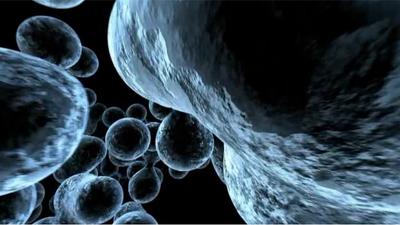
Everywhere we look, life exists in both the most hospitable of environments and in the most extreme. Yet we have only ever found life on our planet. How did the stuff of stars come together to create life as we know it? What do we really mean by 'life'? And will unlocking this mystery help us find life elsewhere?
s01e06 / Are We Alone?
15th Jul '10 - 2:00am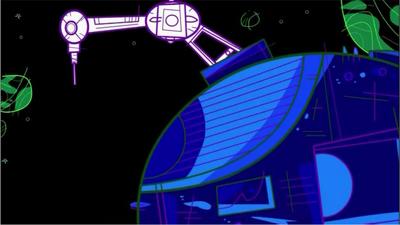
Aliens almost certainly do exist. So why haven't we yet met E.T.? It turns out we're only just developing instruments powerful enough to scan for them, and science sophisticated enough to know where to look. As a result, race is on to find the first intelligent aliens. But what would they look like, and how would they interact with us if we met? The answers may come to us sooner than we imagine, for one leading astronomer believes she may already have heard a hint of their first efforts to communicate.
s01e07 / What Are We Really Made of?
22nd Jul '10 - 2:00am
Our understanding of the universe and the nature of reality itself has drastically changed over the last 100 years, and it's on the verge of another seismic shift. In a 17-mile-long tunnel buried 570 feet beneath the Franco-Swiss border, the world's largest and most powerful atom smasher, the Large Hadron Collider, is powering up. Its goal is nothing less than recreating the first instants of creation, when the universe was unimaginably hot and long-extinct forms of matter sizzled and cooled into stars, planets, and ultimately, us. These incredibly small and exotic particles hold the keys to the greatest mysteries of the universe. What we find could validate our long-held theories about how the world works and what we are made of. Or, all of our notions about the essence of what is real will fall apart.
s01e08 / Beyond the Darkness
29th Jul '10 - 2:00am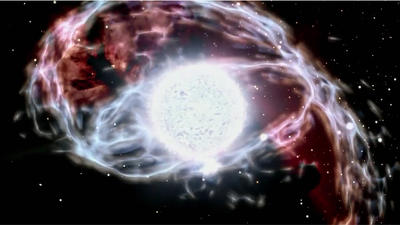
What is the universe made of? If you answered stars, planets, gas and dust, you'd be dead wrong. Thirty years ago, scientists first realized that some unknown dark substance was affecting the way galaxies moved. Today, they think there must be five times as much dark matter as regular matter out there. But they have no idea what it is - only that it's not made of atoms, or any other matter we are familiar with. And Dark Matter is not the only strange substance in the Universe - a newly discovered force, called Dark Energy, seems to be pushing the very fabric of the cosmos apart.